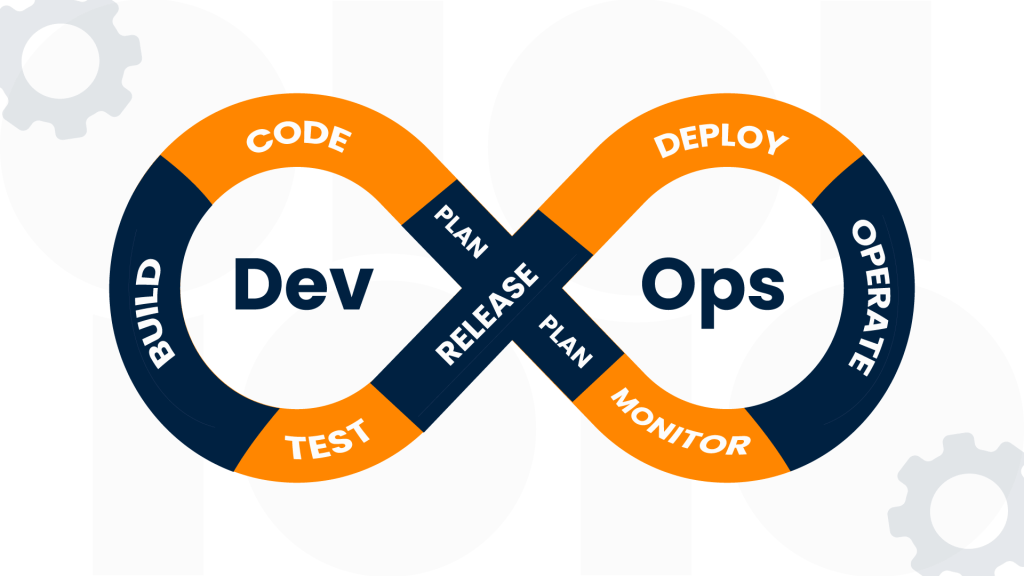In the world of software engineering, DevOps has become an increasingly popular approach to delivering high-quality software solutions quickly and efficiently. In simple terms, DevOps is a methodology that combines development and operations, hence the name. It is an approach that brings together the software development team and the operations team to work collaboratively throughout the entire software development lifecycle.
In this blog post, we’ll explore how DevOps works and why it’s important.

How Does DevOps Work?
As previously mentioned, DevOps is a set of practices and tools that emphasize collaboration, automation, and continuous improvement throughout the software development lifecycle. DevOps teams work together to automate the software development process, from building, testing, and deployment to monitoring and feedback.
This integration helps teams identify issues and fix them faster, learn from mistakes more easily, and make better use of their time to focus on what matters — making great products rather than spending so much time just keeping things running.
How Did It All Start?
The DevOps movement began as a response to the siloed nature of IT departments and their conflicting goals — the developers wanted fast feedback on their code, while operations wanted stable infrastructure. The solution was to break down these barriers by bringing the two groups together so they could collaborate on delivering value faster than before.
DevOps is not a role, but rather a culture in which everyone works together to deliver software more quickly and reliably.
Continuous Integration (CI)
Continuous integration (CI) is one of the pillars of DevOps, and it’s responsible for ensuring that code can go through testing every time a developer makes changes.
What is the process? Every time you want to change your codebase and push it into production, you must first run all of your tests on the local computer. If those pass, then they’re sent off to be run against an automated testing platform like Jenkins or Travis CI. Once those tests pass there, too — assuming everything else looks good — the code gets merged into the mainline repository so other developers can get their hands on it as well.
The perks of DevOps shine in situations when code changes cause problems or don’t work as expected. In such cases, the team can see them immediately instead of waiting for release day. This allows developers and testers to collaborate in real time and fix matters before they become bigger problems.
Continuous Delivery (CD)
The idea behind continuous delivery is that developers can deploy code anytime without needing explicit approval from other team members. This is important as it allows companies to release their products more often, which means they can test out new features and get feedback more quickly. Similarly, if there are bugs in the software, they can be fixed faster — and with less stress!
How does this work? Let’s say a developer wants to add something new to their app — a new feature or function. With traditional methods (which we’ll call “batch”), a developer would have had to submit their changes for review before deploying them live. This process can take days or even weeks, depending on how long it takes for everyone involved in reviewing those changes.
Key Components
When analyzing the DevOps workflow, we must address several key components that manage the entire software development lifecycle and ensure quick and efficient solutions.
Plan: The first step in the DevOps workflow is planning. This involves defining the project scope, identifying requirements, and creating a roadmap for the project.
Develop: Once the planning phase is complete, the development team begins working on the project. They write code and create applications based on the requirements and roadmap created during the planning phase.
Test: After the development phase is complete, the testing phase begins. This involves running automated tests to ensure that the software is functioning as expected.
Deploy: Once the testing phase is complete, the software is deployed to a production environment.
Operate: After the software is deployed, the operations team is responsible for maintaining and monitoring the software to ensure that it is functioning as expected.
Feedback: Throughout the entire DevOps workflow, feedback is collected from users, stakeholders, and team members. This feedback is used to make improvements to the software and the DevOps process itself.

Why Is DevOps Important?
In the DevOps world, there are no distinct job roles or titles — only developers who work together to deliver software. The goal is to improve the speed and quality of software development by integrating developers’ processes with those of IT operations staff. As such, there are five main reasons why DevOps is important in the tech industry.
1# Faster Time-to-Market
DevOps helps organizations release software faster by automating the software development process, reducing the time it takes to release software from weeks or months to days or hours.
2# Better Quality Software
By automating the testing process, DevOps teams can catch bugs and issues earlier in the software development process, resulting in higher-quality software.
3# Increased Collaboration
DevOps fosters collaboration between development and operations teams, resulting in better communication and more efficient processes.
4# More Efficient Processes
DevOps automates repetitive tasks, freeing team members to focus on more important tasks and reducing the risk of human error.
5# Continuous Improvement
DevOps is an iterative process that encourages continuous improvement. Feedback is collected throughout the entire process, which is used to make improvements to the software and the DevOps process itself.
DevOps: It’s Not a Role, It’s a Culture
In conclusion, DevOps is a methodology that combines development and operations to deliver high-quality software quickly and efficiently. By automating the software development process, DevOps teams can release software faster, with higher quality, and more efficiently. Also, the collaboration between development and operations teams also fosters better communication and more efficient processes, resulting in continuous improvement throughout the software development lifecycle.